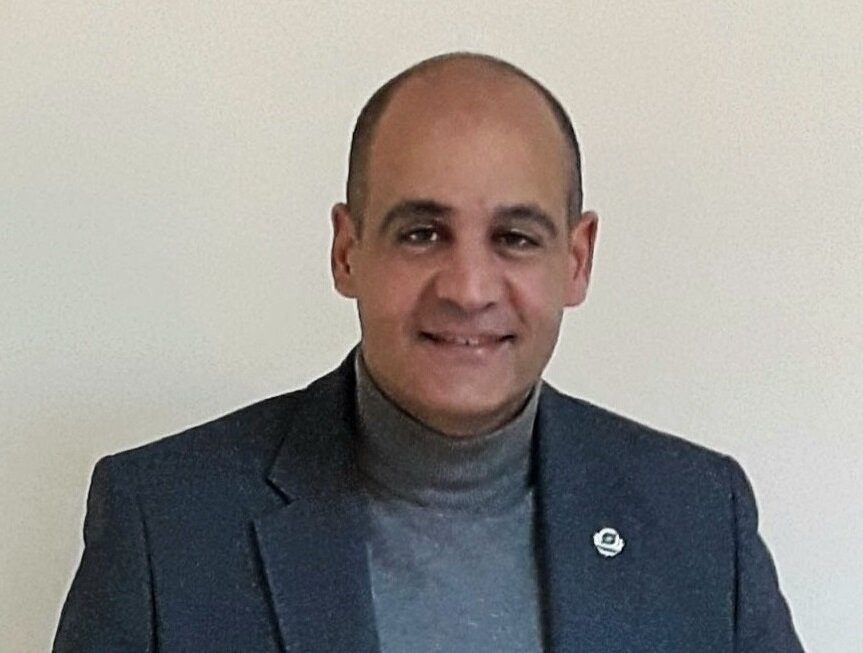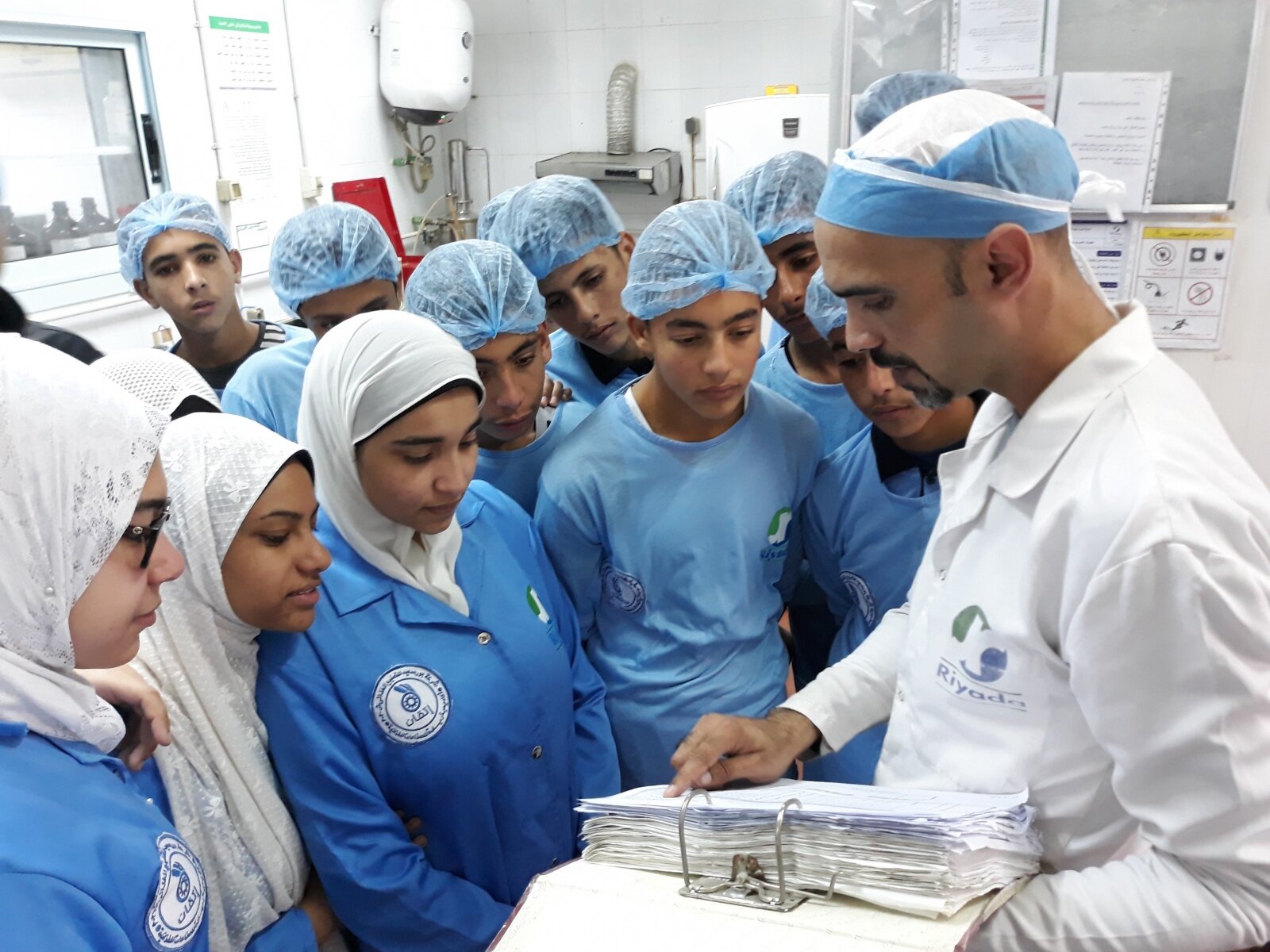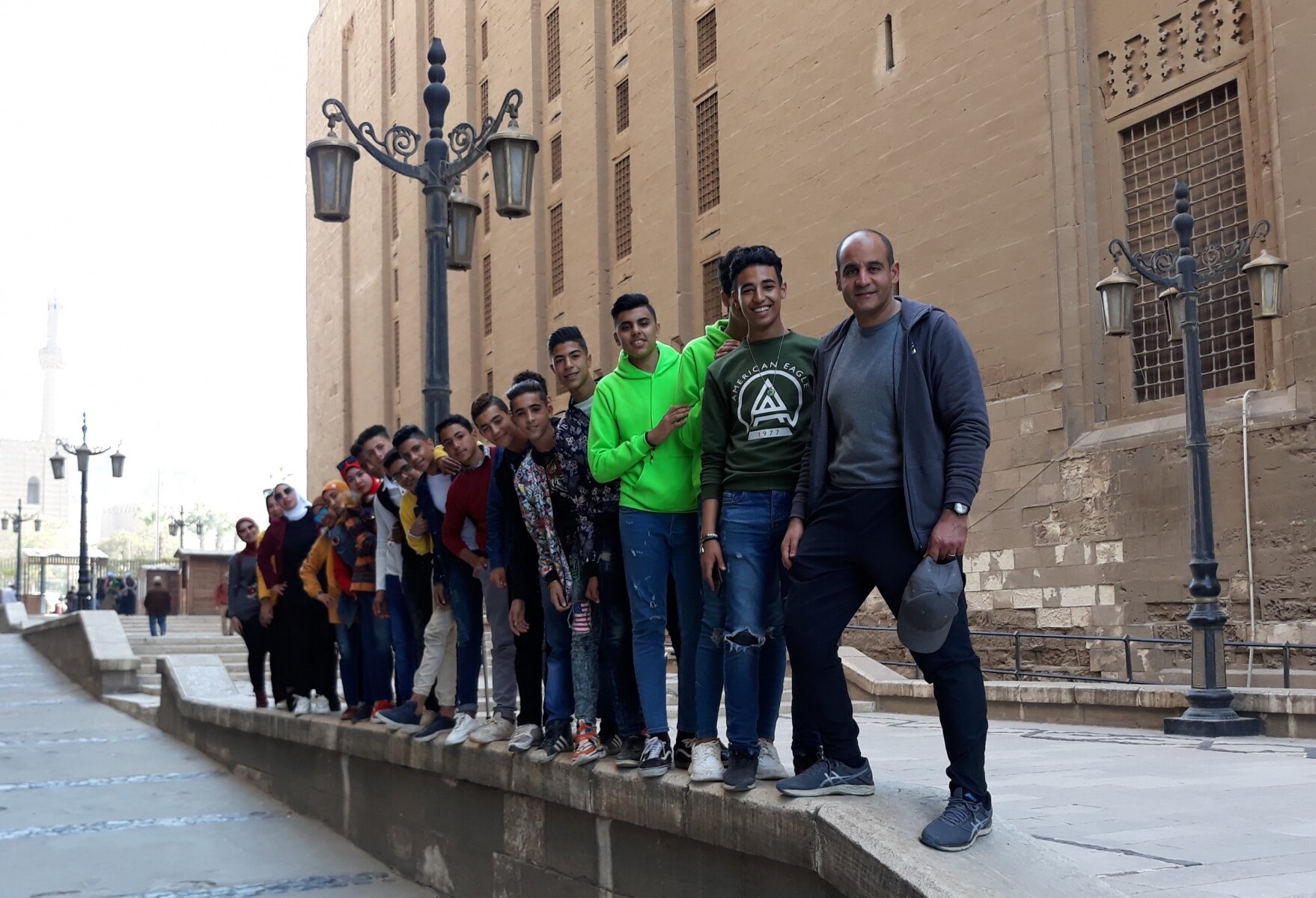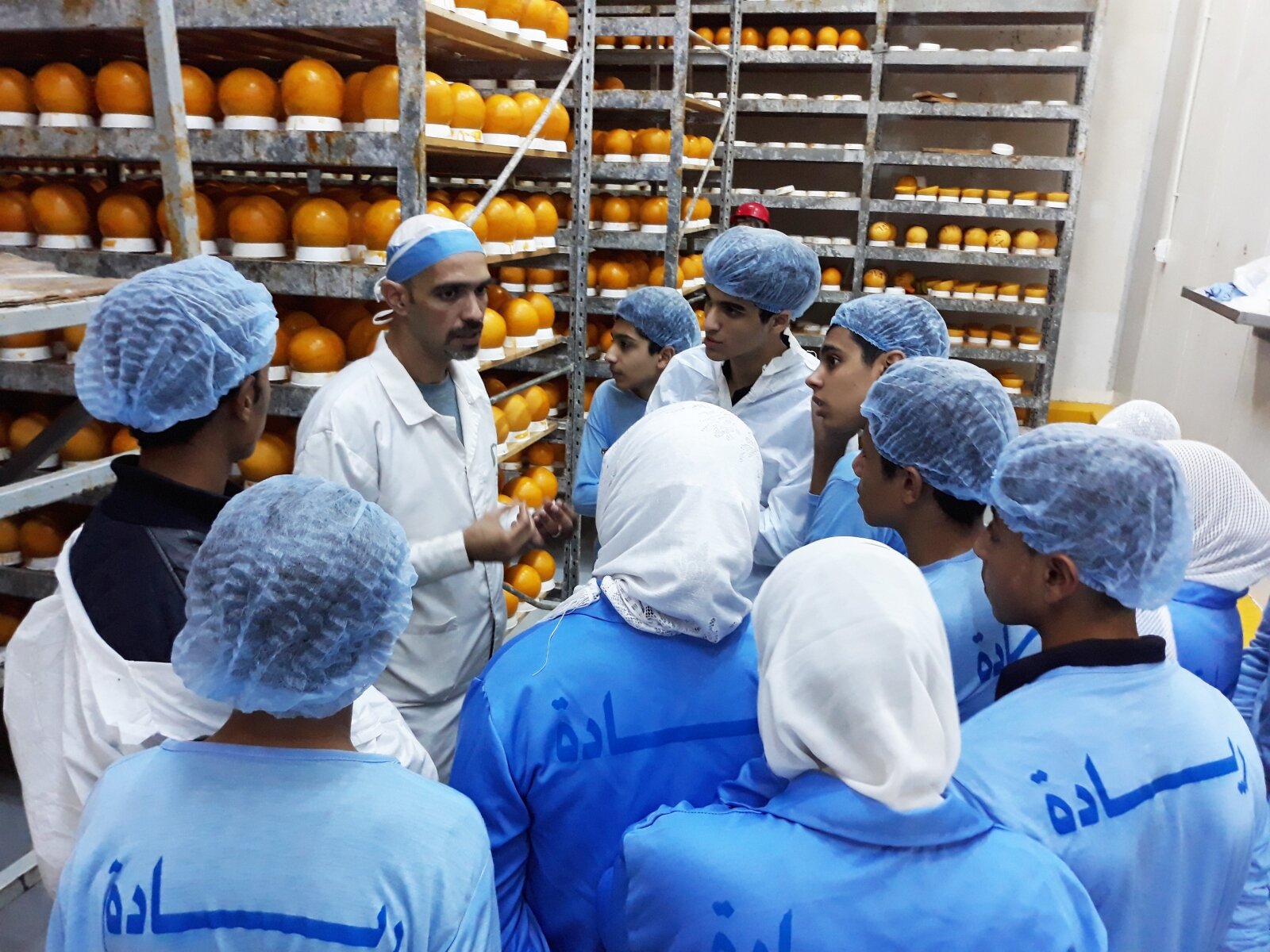What does Riyada do?
We are a milk processing company headquartered in Port Said, a port city in the north of Egypt. We process around 70 tons of milk a day into cheeses such as gouda, mozzarella, and feta. We have been on the market for 15 years now and have grown to become Egypt’s leading producer. Everyone in the country knows our Cheesa, Asala and Diafa brands.
What is your role in the company?
I manage the plant. The company is part of our family holdings, which include other enterprises of the food industry. My father founded the first and oldest one in 1977.
What were your take-aways from the Manager Training Programme?
I brought back a lot of new ideas from Germany. The German economy is structured differently to ours. There are a lot of non-governmental enterprises which compete. This competition drives them to keep improving, a concept I decided to employ in our sales departments. I started by defining set targets and introducing bonuses and incentives. Now all the results are recorded and compared in quarterly reports, which helps me manage sales. I learned that you can only manage what you can measure.
What impact have the changes had?
I have seen how much more motivated my teams are now, and how important it is for the whole team to believe in and get behind a goal. The first task though was building team spirit. There is a saying in football: Argentina has Messi, Brazil has Neymar, and Germany has a team. I took this idea on board in my management, dividing our units into teams with team leaders and introducing “dailies,” daily ten-minute organisational team meetings.
How are you coping with the Corona pandemic so far?
My employees are like extended family to me. Fortunately, we have not had to lay off any of our 500 employees. They appreciate that and are very loyal. Together we have tried to make the best of the situation, even though as a food processing company we are subject to particularly strict hygiene regulations. We had to temporarily introduce shifts to maintain a safe distance among the workers, for example. Women worked during the day, men in the evenings and at night. Generally speaking, we have been lucky and seem to be making it through the crisis relatively unscathed. Cheese is a staple. Sales to the hotel industry have dropped because there are few to no tourists at times.
What are you doing to make up the difference?
We are working on developing new markets in countries like Libya. We currently sell 70 per cent of our cheese in Egypt and export 30 per cent to the Middle East and Russia.
Do you also work with German enterprises?
We use German and foreign equipment in our production line, such as for packaging our cheeses. We have also worked with the Foundation of German Industry for International Cooperation. A quality management and automation expert visited and gave us tips for improvements that we are now working on implementing. Apart from how motivated employees were, what impressed me most in Germany were the high hygiene standards and the technical equipment.
You have recently started a vocational training programme based on the German model. How has that been going?
We started it last year and are incredibly happy with it. Trainees are at the company two to three days a week and go to school on the other days. They are training to be dairy technologists. As another element of the programme, we offered seminars to teach our engineers how to pass their knowledge on to trainees in a professional and understandable way. We want to train 200 milk technologists and offer all of them a job. We were the first dairy company to be accredited for the programme by the Ministry of Trade and Industry. We just completed a manual on our vocational training programme to serve as a guide in the city and region. We played an active role in developing the curriculum and worked with the Chamber of Food Industries and other partners. Our programme was modelled on Germany’s vocational education system. We also just signed a contract with the Ministry of Education to establish a technical college that will offer vocational training as well. We also have a group of students from this new programme at the company, so there are two groups doing in-house training with us at the moment. We are not just doing this for ourselves, but also for our country. It is a way we can contribute to modernising vocational training in Egypt.
Information about Riyada



